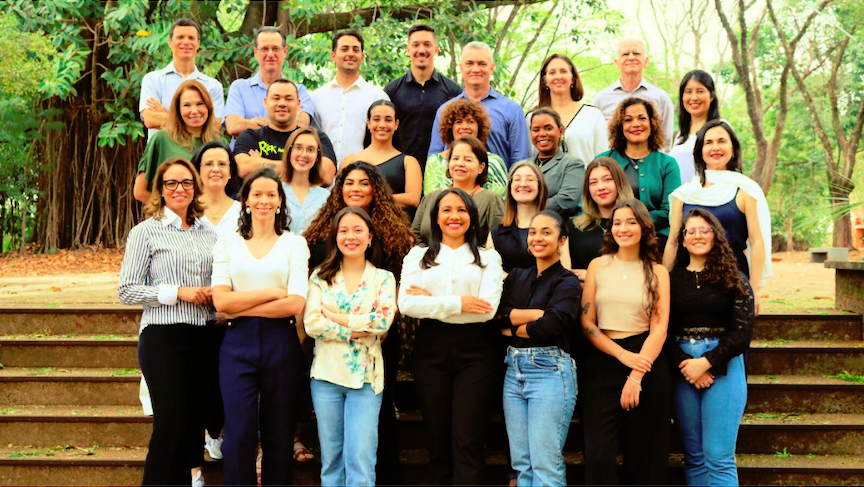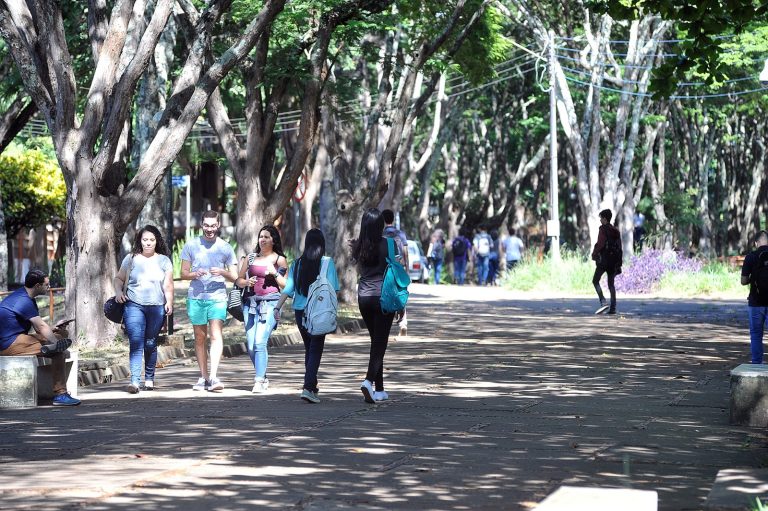São Paulo – Students from the State University of Londrina (UEL) in Brazil will embark next week for a 15-day exchange program in Dubai, United Arab Emirates. This is the first time that the “Cultural Immersion and Foreign Language Improvement Program through International Academic Trips” will go to an Arab country after having visited South Africa, Chile, Spain, Uruguay, and England since 2015, offering courses that hold academic, cultural and linguistic enhancement activities in English or Spanish.

In Dubai, they will study English in the morning and participate in academic and professional visits in the afternoon across the emirates of Dubai, Sharjah, and Abu Dhabi. The schedule includes visits to technology startup Pure Harvest Smart Farms, which focuses on fruit and vegetable production; the Sharjah Research, Technology, and Innovation Park, which conducts research in health, energy, and the environment; and Dubai’s solar park. The group will also attend a class on financial decision-making and another on artificial intelligence, design, and social media at the Australian University of Wollongong’s Dubai campus. Other activities are also planned.
Thirty-one people will take part in this course, including students from Executive Secretariat, Journalism, Business Administration, Language Studies, Pedagogy, Nursing, and Physical Education, as well as staff, teachers, and students from UEL’s Language Laboratories.
On Wednesday (16), the participants of the delegation had a virtual meeting with the head of the Arab-Brazilian Chamber of Commerce (ABCC) office in Dubai, Rafael Solimeo, and the market intelligence manager of the institution, Marcus Vinicius. They presented the economic and cultural characteristics of the UAE. Solimeo noted that 10% of the UAE’s population is local and 90% is made up of foreigners. Therefore, English is the most common language in the country.
Business model of the UAE and Dubai
Solimeo also commented on the history and business model of the country. “The UAE began to explore oil between the 1970s and 1980s but struggled to obtain labor and started attracting foreigners. They ended up attracting foreign direct investment. There are also no taxes here, only in some cases. It’s a tax haven.”
Solimeo added that the country is managed like a business in a commerce-oriented culture. “If London has a Ferris wheel, here we have a bigger one; the casinos here will be larger than those in Las Vegas. The world’s largest swimming pool is here, as well as a building nearly a kilometer tall,” Solimeo cited as examples of the investments that Dubai and the UAE make to attract people and businesses.
Marcus Vinicius presented economic data regarding the Gulf country. The UAE has a gross domestic product of over USD 500 billion and a per capita income of USD 53,000. Their main economic activities include oil and gas production, trade and services, tourism, and manufacturing. It is the second-largest trading partner of Brazil among Arab countries, Vinicius noted.
In 2023, Brazil exported USD 3.1 billion and imported USD 1.2 billion from the UAE, resulting in a surplus of USD 1.9 billion. “The export basket is still heavily based on commodities. About 70% of Brazil’s exports consist of food and commodities. In the opposite direction, 90% of the UAE’s exports to Brazil are made up of oil and fertilizers,” he said.
Read more:
Dubai: Destination for Brazilian exchange students
Translated by Guilherme Miranda




